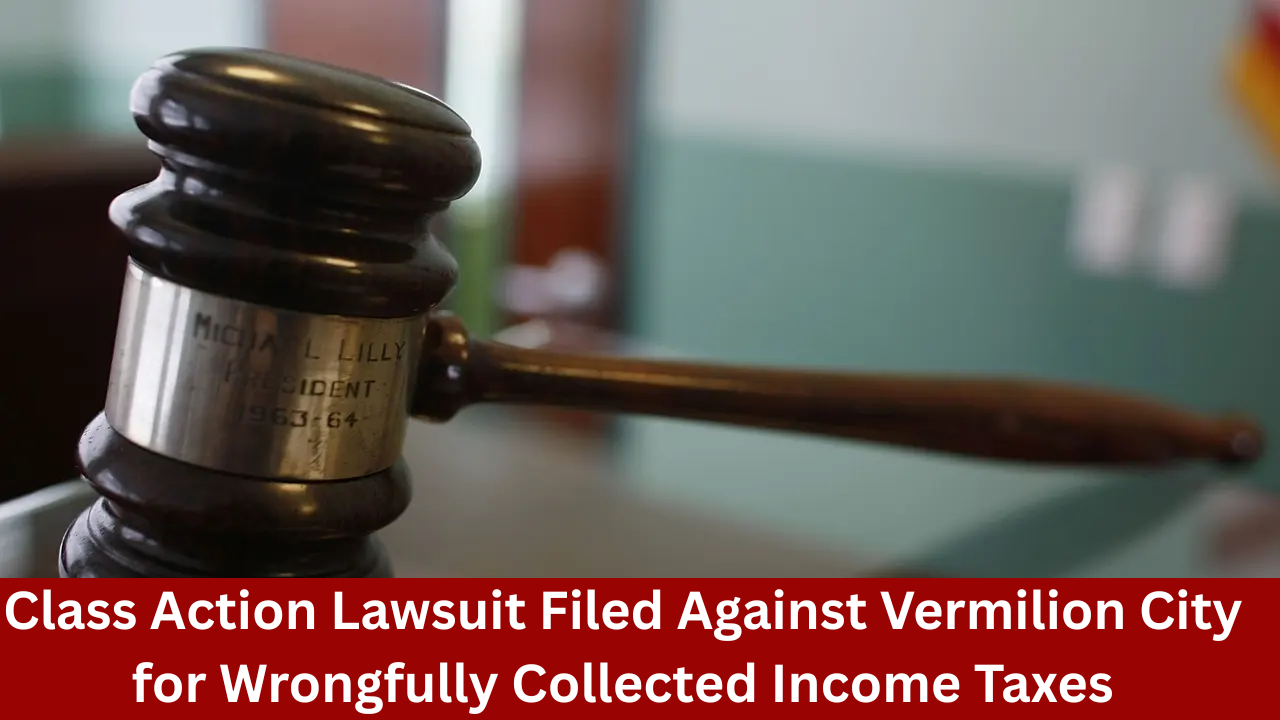Three residents of Vermilion, Ohio, have taken a bold step by filing a class action lawsuit against the city, its finance director, and the Regional Income Tax Agency (RITA).
Their demand? A refund of city income taxes they believe were wrongly collected between 2018 and 2022.
This legal case, filed on April 15, is being led by Avon Lake attorney Gerald Phillips. He is representing residents Thomas and Corrie Ostrowski, along with Roy B. Anderson. Together, they are challenging the city’s past handling of the Resident Income Tax Credit ordinance.
What Is the Issue?
Back in 2018, the Vermilion City Council approved a Resident Income Tax Credit ordinance that allowed a 1% tax credit for residents who worked outside the city, provided the outside city also taxed income at 1% or more.
This credit was supposed to prevent double taxation, where Vermilion residents working in cities like Cleveland or Elyria wouldn’t have to pay full income tax to both municipalities. However, according to the lawsuit, Vermilion failed to provide the full 1% credit from 2018 to 2022.
Instead, in 2022, the tax credit was cut back to just 0.5%. Though the city council later repealed that change and reinstated the full 1% credit in April 2025 (through Ordinance No. 2025-12), the residents argue that the damage was already done. Many residents ended up paying more tax than they should have for years.
Why a Class Action?
Attorney Gerald Phillips says this issue affected many people, but the individual refund amounts for each taxpayer weren’t large enough to justify the cost of filing separate lawsuits.
“No one resident would file this legal action to recover the amount wrongfully collected and withheld, since the legal costs would far exceed the amount of their recovery,” said Phillips. “This is why the class action has been filed.”
By combining their claims into a class action lawsuit, the plaintiffs aim to represent all affected Vermilion residents and seek collective compensation.
What does the Lawsuit demand?
The legal filing is seeking over $25,000 in restitution for taxes the plaintiffs claim were unfairly collected. In addition to that, the suit also demands more than $25,000 in punitive damages—this is to hold the city accountable for what they call “unjust enrichment.”
Put simply, the plaintiffs argue that Vermilion financially benefited at the expense of its residents, and did so knowingly.
City Officials Stay Silent

According to Phillips, Vermilion Mayor Jim Forthofer and the City Council have been aware of this issue since at least June 2022. Yet, the city took no meaningful steps to correct it or offer refunds.
“This is just not right and intolerable,” Phillips said. “This is why the class action lawsuit has been filed—so the Vermilion residents can get what they deserve.”
When contacted for a statement, Mayor Forthofer declined to comment. Finance Director Amy Hendricks and officials from RITA also could not be reached.
Ordinance Changes and Delays
The heart of the issue lies in how the Resident Income Tax Credit was managed over the years. When first introduced in 2018, the 1% credit was clear.
But in 2022, the city council rolled it back to 0.5%. This created confusion and led to many residents paying higher taxes unnecessarily.
Even though the credit has now been restored retroactively to cover the 2018–2022 period, residents are still out of pocket unless the city refunds the amounts collected.
The April 7 passing of Ordinance No. 2025-12 does bring the tax credit back to the original 1%. However, without a proper system in place to return the money already paid, residents believe the damage remains unresolved.
The Bigger Picture
This lawsuit sheds light on a larger issue many U.S. residents face when local tax policies change without proper communication.
In cities like Vermilion, where residents often work in nearby towns, income tax credits are crucial. Mismanaging these credits can lead to significant financial burdens for working families.
Moreover, the suit highlights the power of class action lawsuits to bring justice in cases where individual claims may seem too small to fight. It also sends a strong message to local governments—transparency and fairness in tax policies are non-negotiable.
What Happens Next?
The case will now proceed through the legal system, where a court will determine whether the city of Vermilion must pay restitution to affected residents. If successful, the class action could lead to thousands of taxpayers receiving refunds.
Phillips is confident that justice will prevail. He believes this lawsuit will not only help recover funds for Vermilion residents but also prevent similar incidents in the future.
Final Thoughts
For now, many Vermilion residents are waiting to see if their years of overpaid taxes will be returned.
This case serves as a reminder that even small tax errors can add up, and communities must hold their leaders accountable when things go wrong.

Deepak Grover is a dedicated content writer at OTE News, specializing in government affairs, public policy, and current events. With a keen eye for detail and a passion for factual reporting, he ensures readers receive accurate and insightful news. Deepak holds a degree in Political Science and has experience in research-driven journalism.
When not writing, he enjoys reading historical books, exploring hiking trails, and staying updated with global political trends. His commitment to ethical journalism makes him a trusted voice at OTE News.



